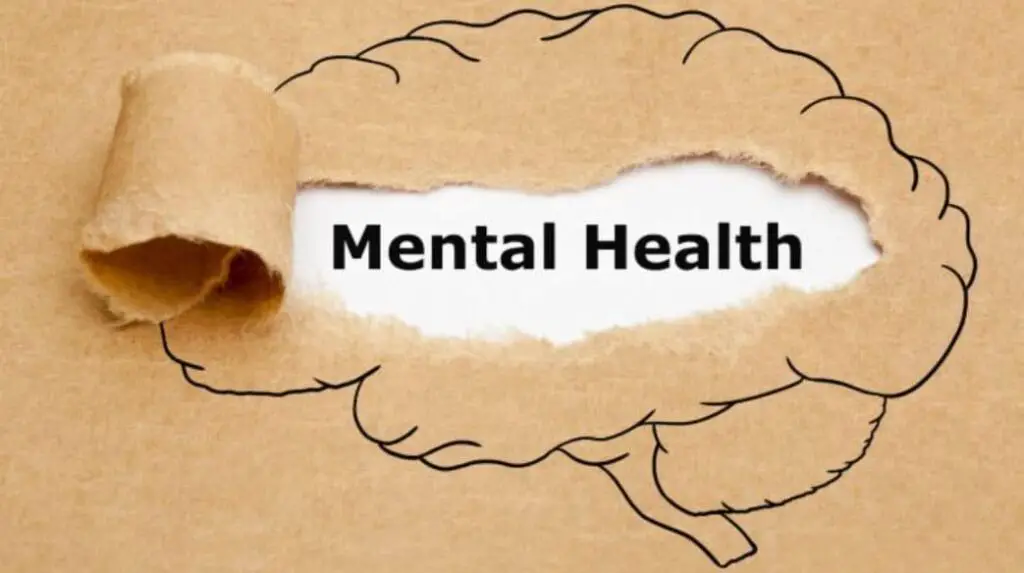Mental health issues are becoming increasingly common, even among older Americans. Anxiety and depression among older adults are at some of the highest levels in history.
Most older individuals have Medicare for their health insurance, so Medicare coverage of mental health services is critical to them.
Treatment varies according to the specific diagnosis, and these treatments can range from counseling to inpatient care in a mental health facility.
So, does Medicare cover mental health services? The answer may depend on the type of service that is rendered, so keep reading to learn all the details about whether your Medicare benefits will pay for mental health services.
Does Medicare Cover Mental Health Services?

The type of treatment that you receive for your mental health often depends on the severity of the condition. You might only need outpatient services for less severe issues, while others may need inpatient care for more severe cases.
Some people wonder, “Does Medicare cover counseling?” We will discuss each of these scenarios in more detail below.
Outpatient Care
Many of the services provided for mental health are performed on an outpatient basis. Medicare Part B covers many outpatient mental health care services. Although this is not an exhaustive list, here are examples of the types of outpatient services covered by Medicare:
- One depression screening per year, as long as the screening is performed at your primary care doctor’s office or other primary clinics
- Family Counseling
- Group therapy or individual psychotherapy with doctors (or other licensed professionals as allowed by some states)
- Medication management
- Psychiatric evaluation
- Some prescription drugs that are not self-administered (for example, certain injections)
- Testing to determine whether you are getting the services you need
- Diagnostic tests
- Partial hospitalization
- Yearly wellness visit
- One-time “Welcome to Medicare” preventive visit
- Outpatient mental health services for the treatment of substance abuse
Remember, your Part B coverage is subject to applicable premiums, deductibles, and coinsurance amounts. We will discuss the costs of treatment later in this article. Also, remember that Part B covers visits with psychiatrists, clinical psychologists, clinical social workers, clinical nurse specialists, nurse practitioners, and physician assistants.
Inpatient Care
If you need to be admitted to the hospital, your Medicare Part A coverage will kick in. Remember that Medicare Part A is hospital insurance. It covers hospital stays and inpatient services.
- Your Medicare Part A will provide coverage for inpatient mental health services in both a general hospital and a psychiatric hospital, though there are some limits on this coverage.
- If Part A pays for inpatient care in a psychiatric hospital, your coverage is limited to 190 days throughout your lifetime.
Once you hit this limit, you will be required to receive your inpatient mental health care in a general hospital. Otherwise, Original Medicare will not pay for the services. However, your Medigap or Medicare Advantage plan might cover additional days.
KEY TAKEAWAYS
- Medicare Part A and Part B will cover most mental health services; one covers inpatient care, and the other covers outpatient care.
- You will still have some out-of-pocket expenses for any deductibles and copays.
- Medicare mental health coverage is limited on how frequently you may receive treatment and the number of days they’ll cover inpatient hospital stays.
Costs Associated With Mental Health Coverage
You might be curious about how much Medicare-covered mental health services will cost. You may have heard of some people choosing not to receive treatment because the cost is too high. However, with Medicare, the cost of mental healthcare services is usually the same as that of other services from your healthcare provider.
For outpatient services, you will be subject to the same deductibles, copayments, and coinsurance amounts that you would expect from your Part B coverage.
- You will need to cover your $240 Part B deductible.
- Once you have met your deductible, Medicare pays for 80% of the Medicare-approved amount for the covered service.
- Before your visit, make sure that your mental health provider accepts Medicare. This will ensure that your provider charges no more than the Medicare contract amount.
Otherwise, you could be stuck with a much larger bill than expected. It would help if you always talked to your provider beforehand to estimate your out-of-pocket costs for a visit.
- For mental health conditions that require inpatient care, you must first meet your Part A deductible of $1,632.
- You will owe nothing for the first 60 days of your hospital stay, but you will be responsible for 20% of the Medicare-approved amount for any services you receive from the doctors while in the hospital.
- For days 61 through 90, you will owe $400 per day for the hospital stay plus costs for the doctor’s services.
- At day 91, your copayment increases to $800 per day for the hospital stay.
As you can see, your costs significantly increase after you have been in the hospital for 60 days. Your Medigap plan might help cover some of these costs. Likewise, your costs may differ if you have a Medicare Advantage plan instead of Original Medicare.
Medicare Prescription Drug Coverage For Mental Health

As part of mental health treatment, people often need to take medications. Which medications will Medicare cover? Keep in mind that Original Medicare does not cover prescription drugs.
You will need a Medicare Part D prescription drug or Medicare Advantage plan to cover these medications.
- When it comes to specific medicines, many prescription drugs for mental health are always covered by these plans due to Medicare requirements. This includes almost all antidepressants, antipsychotics, and anticonvulsants.
- Even though Medicare covers these drugs, Part D plans are allowed to require prior authorization. This could also include step-therapy requirements for initial starts. This means that before starting one of these medications, your drug plan could require you to try other treatment options.
Lastly, your drug plan may cover other medications not included in the general list above. However, coverage of other medicines would be subject to your specific plan. Other drugs not included in your plan would not be covered by your drug plan. During a benefit period, coverage for other medications could also be restricted based on prior authorization, step therapy, and quantity limits.
Must read articles related to Medicare
- Overview of what is covered under Medicare.
- Will Medicare cover the cost of a yearly flu shot?
- Will Medicare pay for Life Alert?
- What Chiropractic services are covered by Medicare?
- How do you sign up for Medicare?
Mental Health Services Not Covered By Original Medicare
Now that you know which services Medicare covers, it is also helpful to understand the services that Medicare does not cover.
Your health professional might prescribe many different services, so Medicare beneficiaries should ensure that Medicare covers these services before receiving treatment.
One thing to watch for when determining whether Medicare will cover services is the frequency of these services. Although Medicare might cover certain services, it may also limit the frequency of visits.
- If you receive treatment more frequently than Medicare covers, you will need to pay for some of your visits on your own.
Next, while Medicare covers inpatient services, it usually does not cover a private room or private duty nursing.
If you wish to upgrade to a private room, you will usually need to pay the cost out of pocket. Medicare might pay for these costs in rare situations, but only if your doctor says they are medically necessary.
Ask your provider whether your Medicare plan will cover a specific service. You can also learn more about Medicare coverage at Medicare.gov. If Medicare does not cover a service, you may consider asking your doctor why that specific treatment is being recommended. Your doctor might decide to try other treatments that will be covered by Medicare.
Medicare Advantage Plans And Mental Health Coverage
We have mainly discussed Original Medicare mental health coverage, but what about Medicare Advantage plans? Private insurance companies manage Medicare Advantage plans, which must provide at least the same minimum level of coverage as Original Medicare. So, Medicare Advantage plans will cover everything we’ve already discussed in this article.
However, many Medicare Advantage plans offer additional benefits beyond traditional Medicare coverage. Some of these plans include more comprehensive benefits for mental health treatments. This coverage could consist of more days in an inpatient facility, better prescription drug coverage, coverage for a private duty nurse, or other benefits.
Different Medicare Advantage plans offer various kinds of benefits. You should check your plan’s documents for specific coverage details. You can also use the Medicare plan finder tool to find plans that offer comprehensive mental health benefits in your area.
TIP
For those needing medication as part of their mental health treatment plan, Original Medicare does not cover prescription drugs. You must have a Medicare Part D or Medicare Advantage plan to receive prescription drug coverage.
Other Coverage Options For Mental Health Services
Another way to get additional coverage for mental health services is through a Medicare supplement insurance plan.
Medigap Coverage
Medigap plans help cover out-of-pocket expenses not covered by Medicare, such as deductibles, coinsurance amounts, or other out-of-pocket costs.
Even though private insurance companies manage Medigap plans, each type of plan is standardized across the system.
Medicaid Coverage
Another option for mental health coverage is Medicaid. Medicaid is available for low-income individuals and families and is a joint program administered by the federal and state governments.
Each state sets its rules about what its Medicaid program covers, so you should check with your state Medicaid office to determine whether mental health services are covered.
Most states provide reasonably comprehensive coverage for mental health services through their Medicaid programs, which are the largest payers for mental health services in the country.
Short-Term Disability Coverage
Mental health problems can sometimes be so severe that they are seen as disabilities. You might find that your short-term disability insurance plan covers mental health care, though this is quite rare.
Finding A Mental Health Care Provider In Your Area

For those with a mental illness, finding the right provider can be critical to the success of your treatment. So, how can you find the right provider?
- First, you should look for mental health centers in your area and check their reviews and ratings. Community mental health centers more often have lower ratings than private clinics, but many private clinics don’t take insurance plans.
- You should always check to make sure the provider accepts Medicare before you schedule a visit.
- You can also consider telehealth visits with a mental health provider. Assume you find a provider who is further away from your location. You may be able to schedule telehealth visits with this provider if they are the perfect fit for you.
- Getting a referral from your primary care physician can also be a great way to find the right mental health provider.
- Finally, don’t be afraid to switch providers. If you are uncomfortable with your provider or their proposed treatment, you can always get a second opinion.
When it comes to mental health, you need to have complete trust in your provider so that you can follow their treatment plan. A lack of faith in your provider can lead to a regression in your treatment and affect your overall well-being. Managing your mental illness in the best way possible may depend on finding the right provider with whom you connect well.
The Bottom Line
Medicare covers many mental health services, and most have the same copays and coinsurance amounts as other covered services.
Medicare covers both outpatient and inpatient services, and the type of service determines whether it is covered by Medicare Part A or B.
If you need services not covered by Medicare, consider other coverage options, such as Medicare supplement plans, Medigap, or Medicaid.
Frequently Asked Questions
There is no limit to the number of therapy sessions that Medicare will pay for each year, as long as the sessions meet the Medicare coverage requirements.
Some examples of this are therapy sessions related to treatment plans for people who use opioids, treatment for people who abuse alcohol, or psychotherapy.
Occupational therapy will also be covered if it is part of your treatment plan for your mental illness.
Generally, yes, Medicare will pay for these exams. Medicare will cover a yearly depression screening. Remember that you don’t have to show any signs of depression to get this annual screening, and it won’t cost you anything.
In addition, Medicare pays for diagnostic assessments and tests, like psychiatric evaluations. Tests covered by Medicare may be delivered in person, or virtually in some cases.
No, Medicare does not cover mental health outside of America. Medicare coverage, in general, is limited to services provided within the United States.
There are a few rare exceptions that allow for coverage of health care outside of the United States, but these are usually emergency situations in select countries.
If you need mental health services, you should find a provider in America that you can use.
Medicare can be used for therapy, although it does not cover all types of therapy. Therapy related to substance abuse treatment programs will be covered, and group or individual psychotherapy will also be covered.
Many therapists do not accept Medicare, so this is where you could encounter issues. Even though Medicare provides coverage for these services, you will need to make sure that your provider accepts Medicare. If they do not, you will have to pay for the service out of your own pocket.
You can find a Social Security Administration office near you by using our SSA office locator and searching for your closest location.





